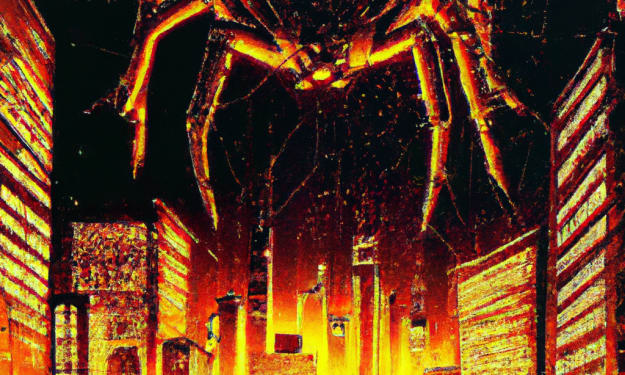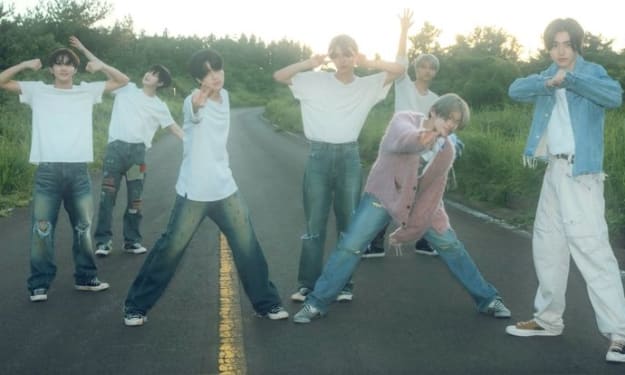The Fear of Being Unremarkable
Invisible Giants That Belay Great Work

I watched the Netflix series You thrice. As a writer, the way it presents literary people fascinated and infuriated me to a point of near obsession. As such, I could dedicate an entire essay to the detriment of pompous discourse and better-than-you mentalities on the literary community, citing this show’s abysmal portrayal throughout. But, that is for another time. Now, I must expel from my mind thoughts, which I fear are nitpicks that I alone contemplate, on a line spoken by the character Blythe (Hari Nef) that incessantly rings in my ears each time I outstretch my fingers to write:
“My worst fear… is not to be bad, but unremarkable.” (Blair)
In the show, she makes this remark in a graduate writer's workshop. Without objection, the facilitator and students nod and agree with the statement. Normally, this action, as an expression of her fear, wouldn't be an issue. However, the character Blythe isn’t just an insecure graduate student. An already accomplished writer, she holds a position of authority within the workshop and the other students venerate her literary prowess. So, when she expresses her fear, the implication is that her peers should heed her word and adopt that fear as their own and they do indeed follow suit. I admit that, for some time, I adopted such a fear as well. But, when for too long it hung over my head, preventing me from doing my most beloved passion of storytelling, I had to contemplate what being remarkable even means; That is, what it means to myself and what it means for writers in general.
To fear being unremarkable is to set becoming remarkable as a goal. If that weren't the case then there is no logical reason for the fear to persist. So, what does becoming remarkable mean to writers? It implies our, often egotistical, desire to receive affirmation from readers and critics that our ideas are valid, true, and profound. We wish to quell the pervasive fear that humanity, and our stories, are finite- that everything there is to say has already been said. We want people to find something new in our writing, comparing our insight to the greats: Leo Tolstoy, Vladimir Nabokov, Dante Alighieri, and the rest. We wish to see our faces next to the prominent faces of classic literature that old white men laud in stuffy libraries while smoking cavendish tobacco and sipping hundred-year-old whisky. Yes, to be remarkable in literature is to be immortal in dusty halls and humidity-controlled cases.
Of course, I don’t mean to imply that the great works of classic literature merely serve to buff pretentious men's superiority complexes. They're taught in schools, loved by enthusiasts, and serve as inspiration for many an aspiring author- myself included. However, if I may be blunt, they are more unremarkable than they seem. For readers without literary interests, such works are boring, tiresome, and not worthy of the time it takes to read a single chapter. But, many authors, deemed unremarkable by the same cavendish smoking men from before, write beloved stories for major, worldwide audiences. Authors like Meg Cabot, Douglas Adams, and Terry McMillan may receive eye rolls and blank stares from literary elitists. But, their cherished books are loved to the point of destruction- coffee stained, spine broken, pages upon pages bent for expeditious return. The "unremarkable" stylings of ignored writers most often become living poetry. Sure, their pristine first editions will never sell for thousands of dollars at an auction. Instead, one day their stories will pass from parents to children. The parents will say, “These books made me who I am today. I want you to have them," and the children will take them and love them and be changed by them. To those that center love and literature in their hearts, there is nothing more remarkable than sharing a book with someone you love.
If you desire to be remarkable, then it’s reasonable that you will fear falling short, becoming forgettable. You are, after all, challenging the greats. But if you desire to tell stories and make connections, you can live fearlessly and remarkably in the beating heart of humanity itself.
References
Blair, April. “You.” Netflix, season 1, episode 3, 2018.
About the Creator
Enjoyed the story? Support the Creator.
Subscribe for free to receive all their stories in your feed. You could also pledge your support or give them a one-off tip, letting them know you appreciate their work.






Comments
There are no comments for this story
Be the first to respond and start the conversation.